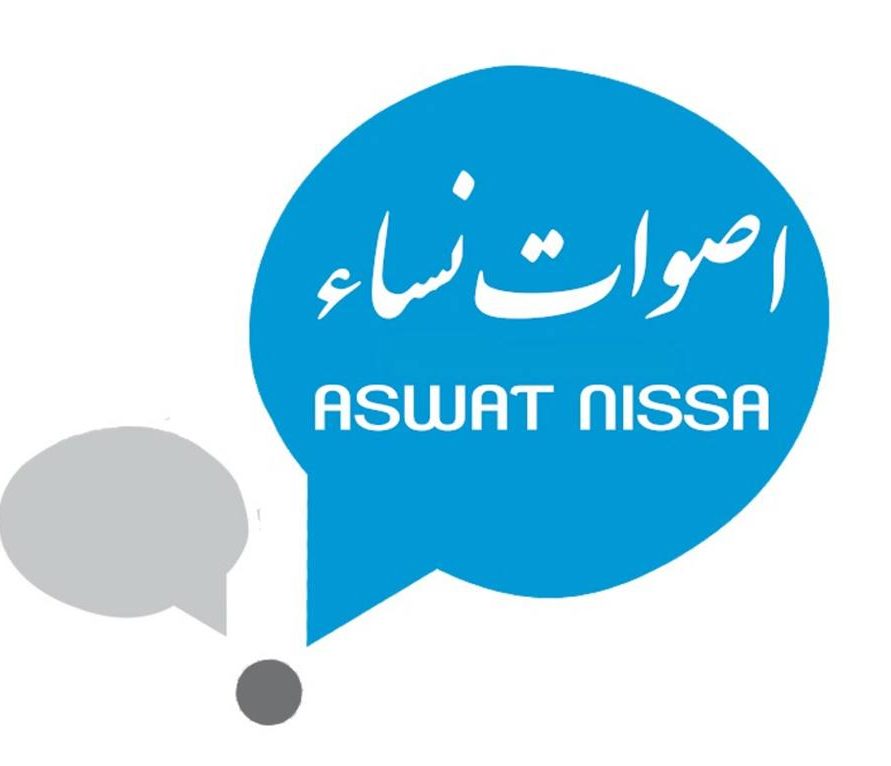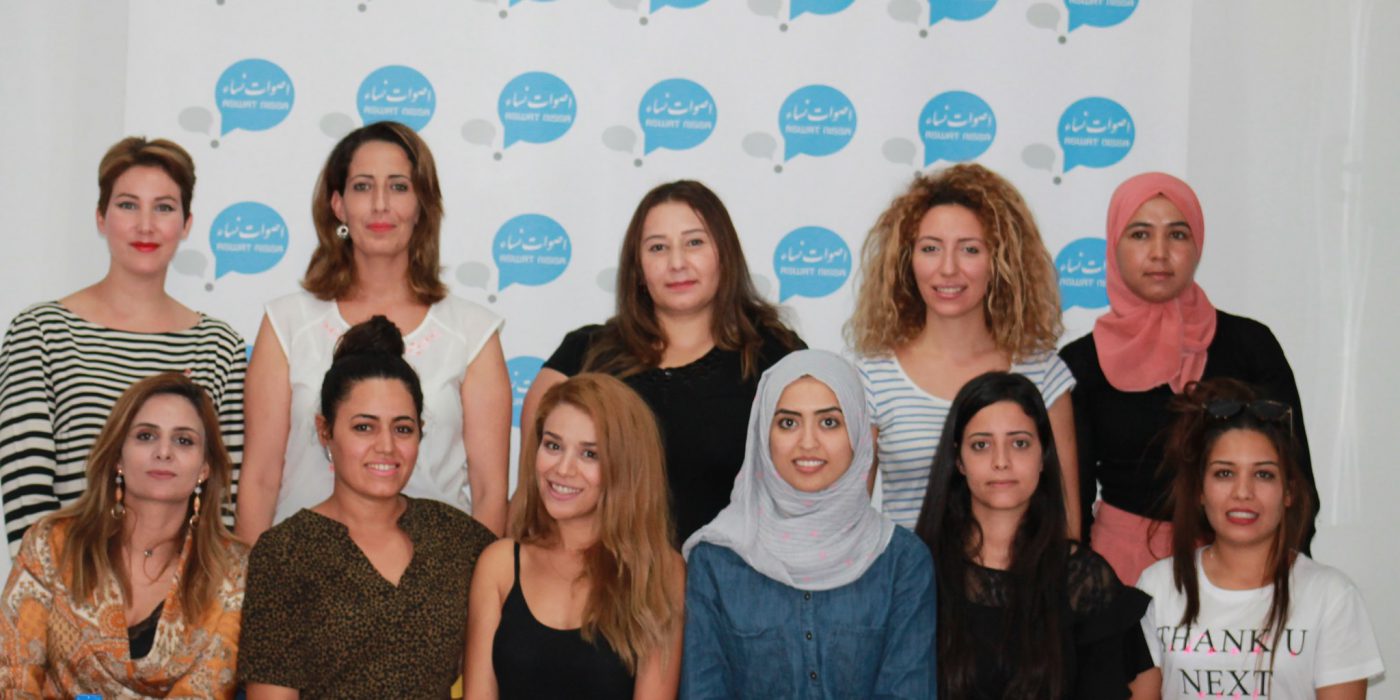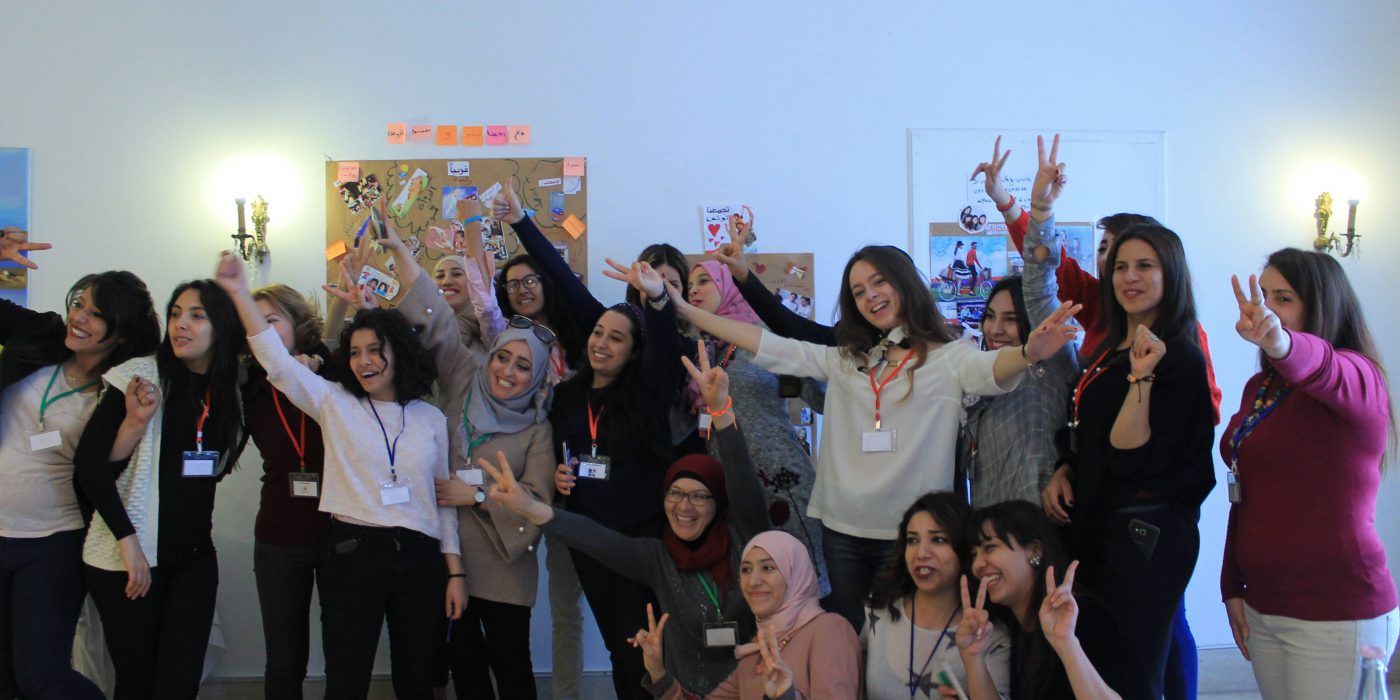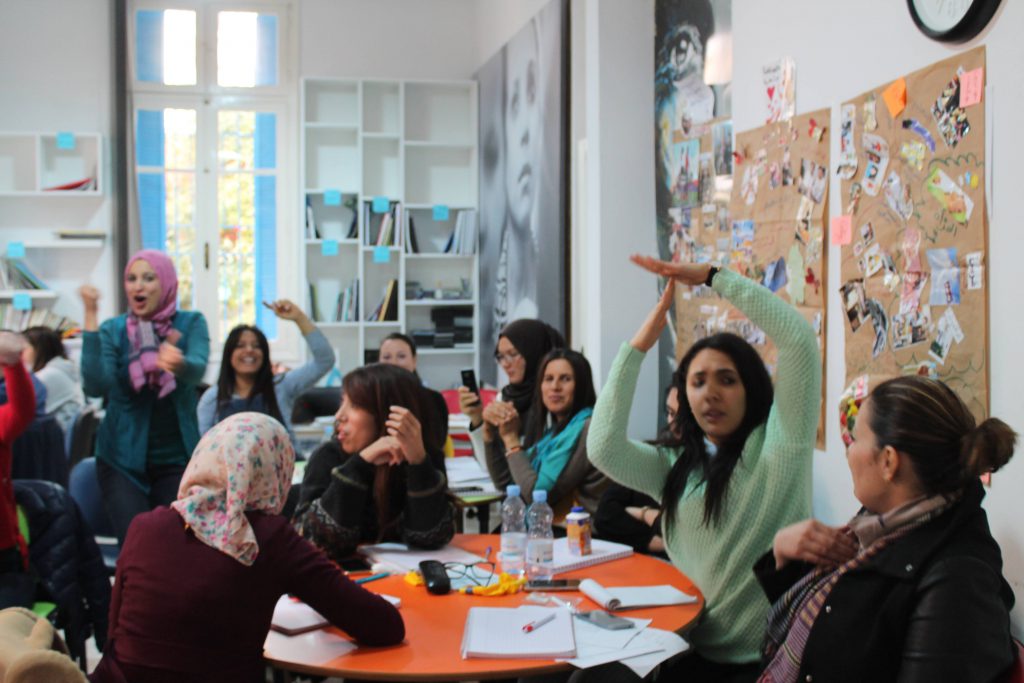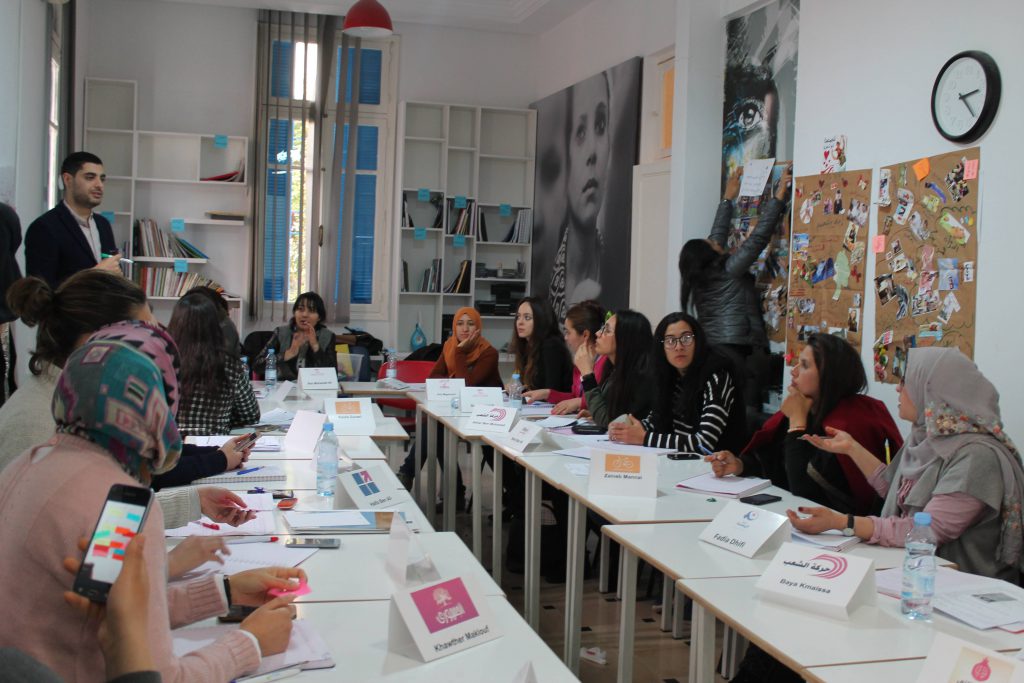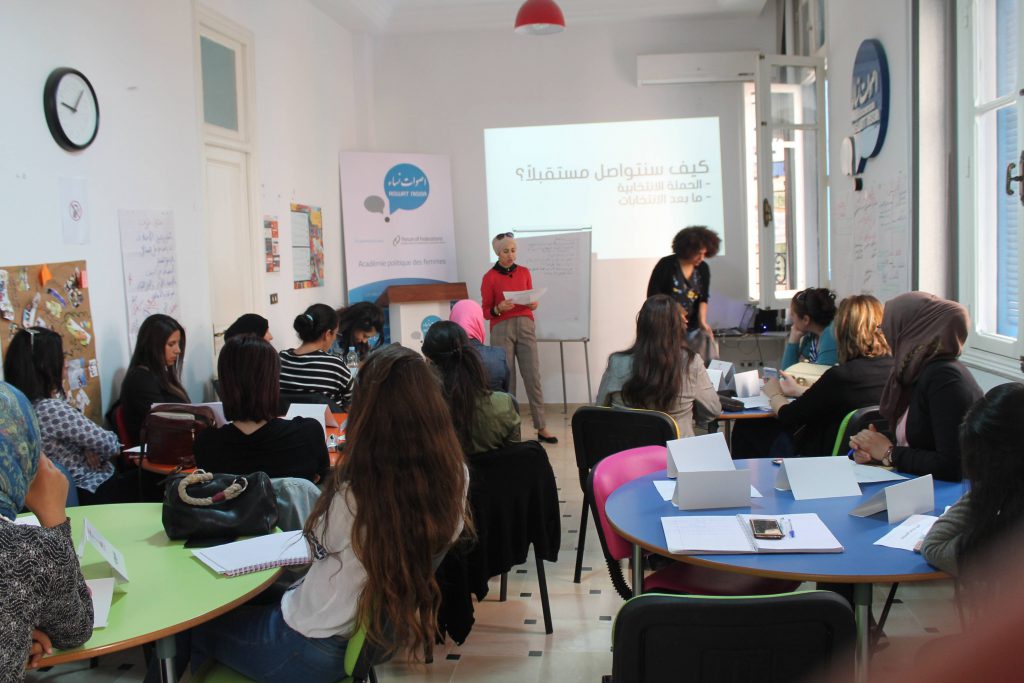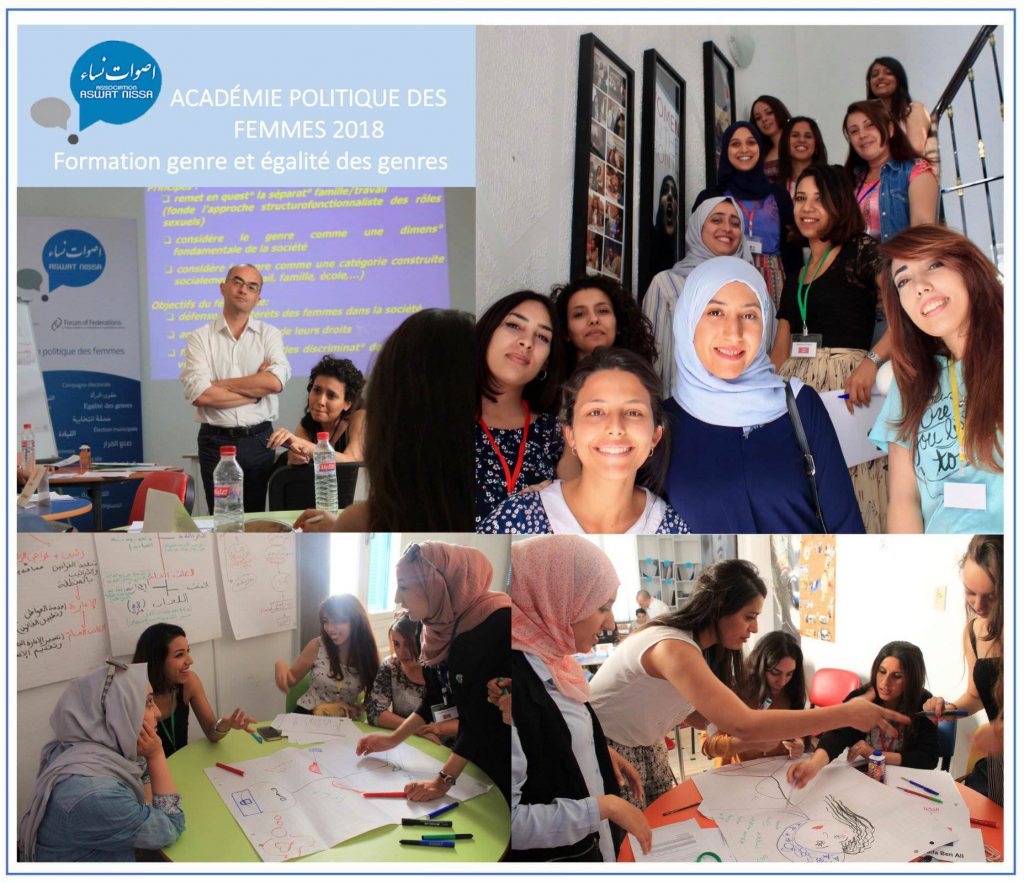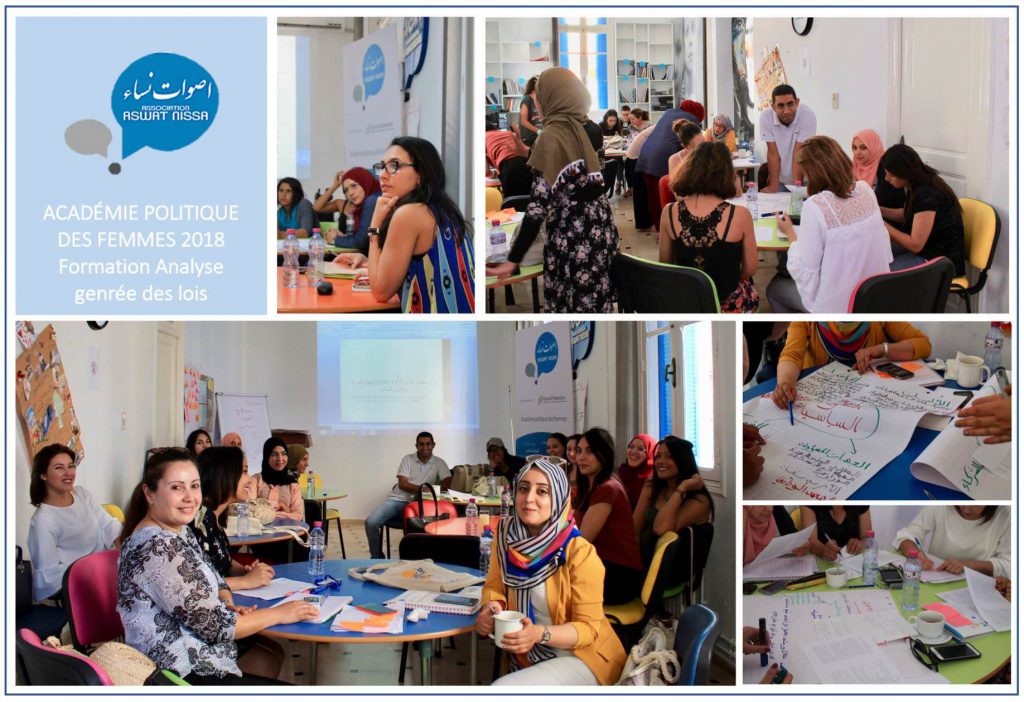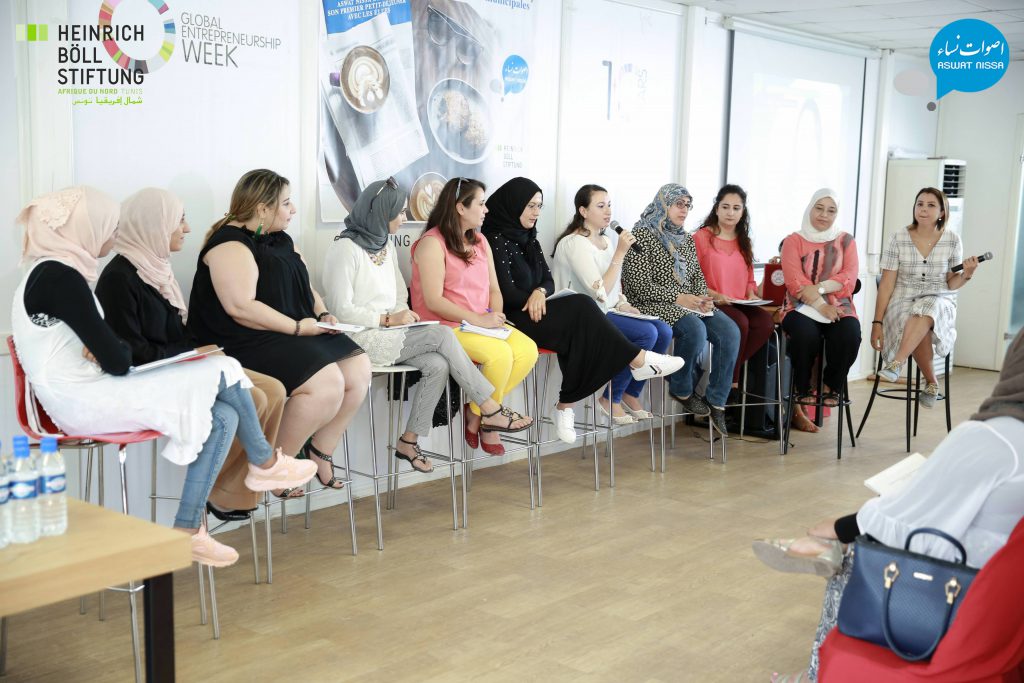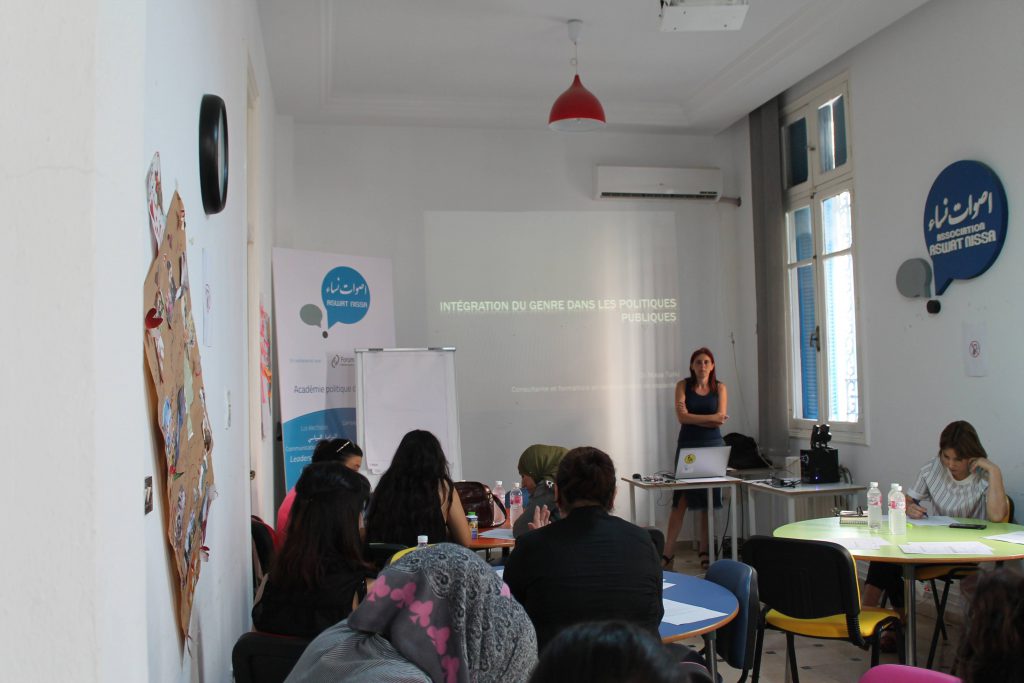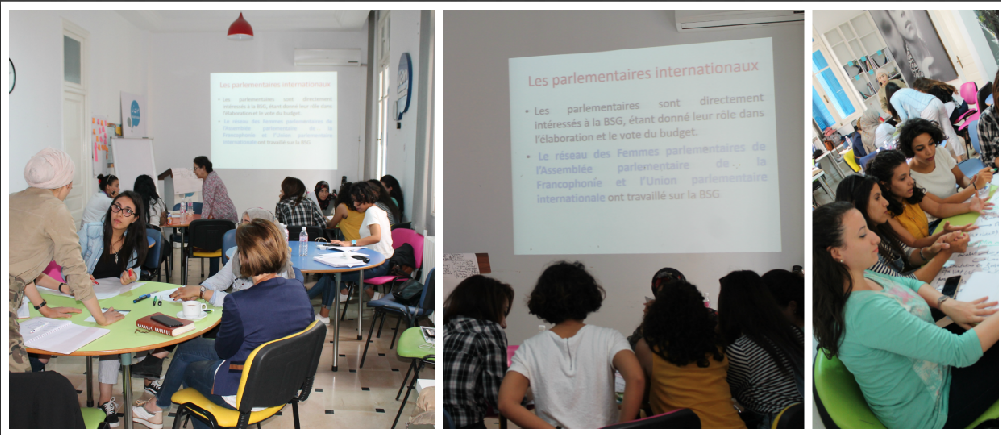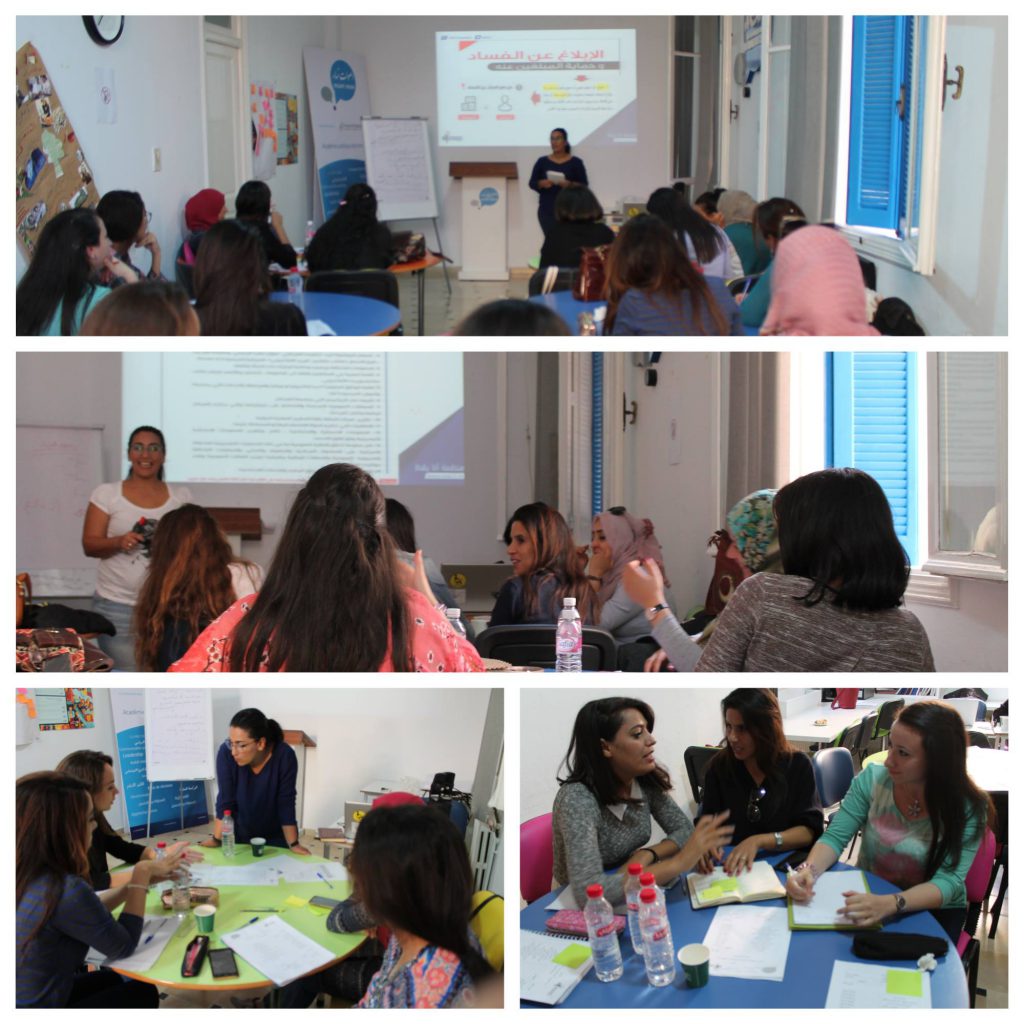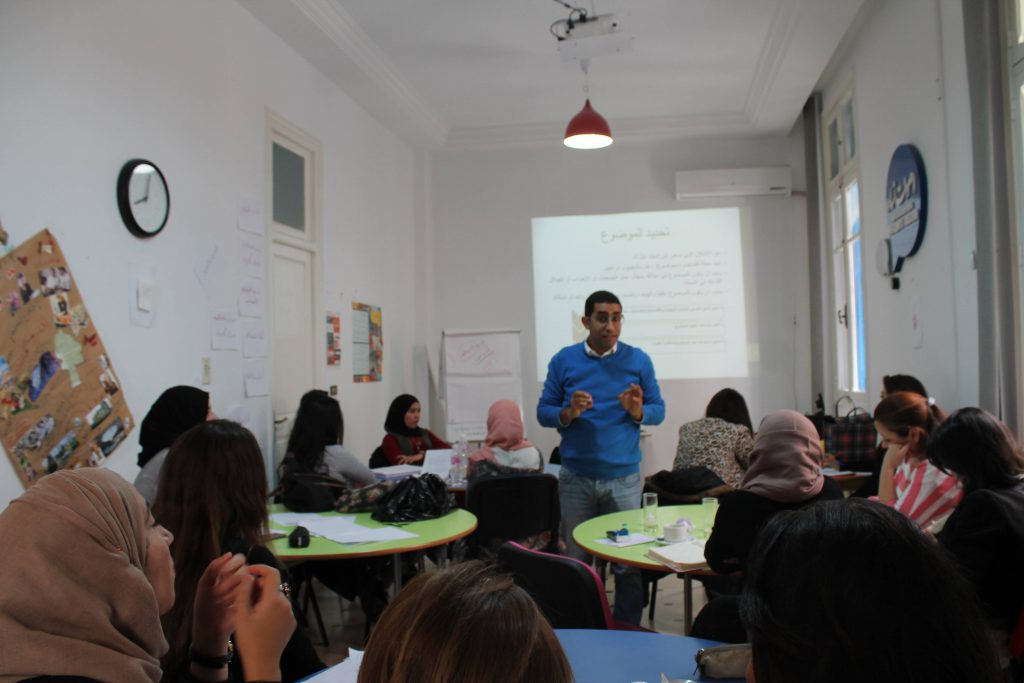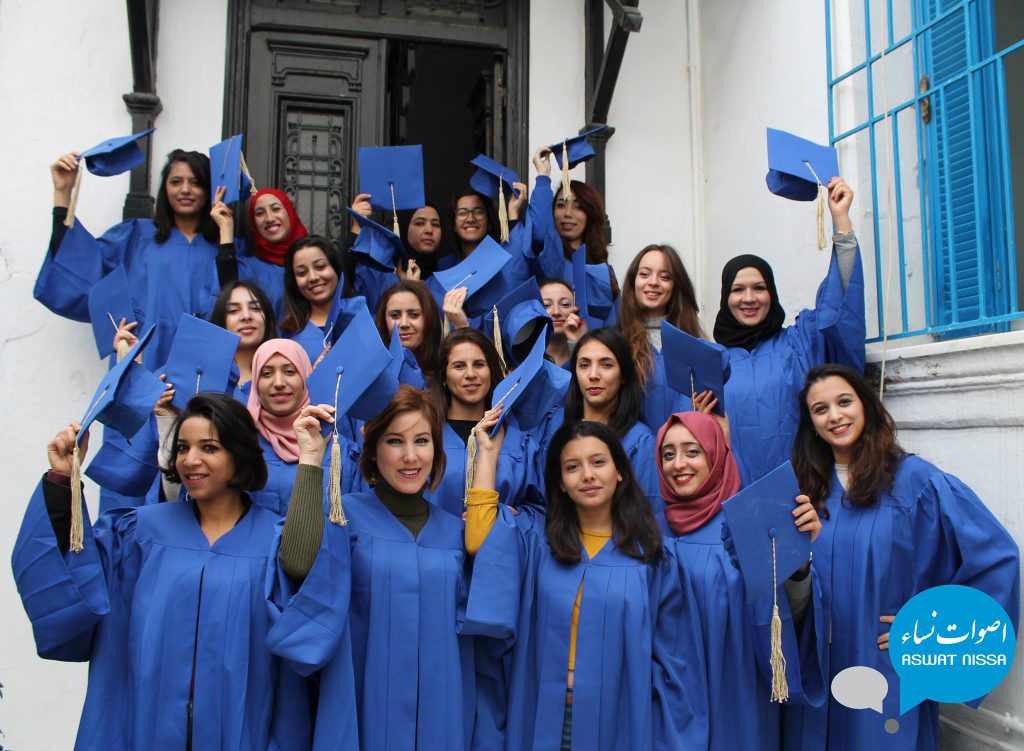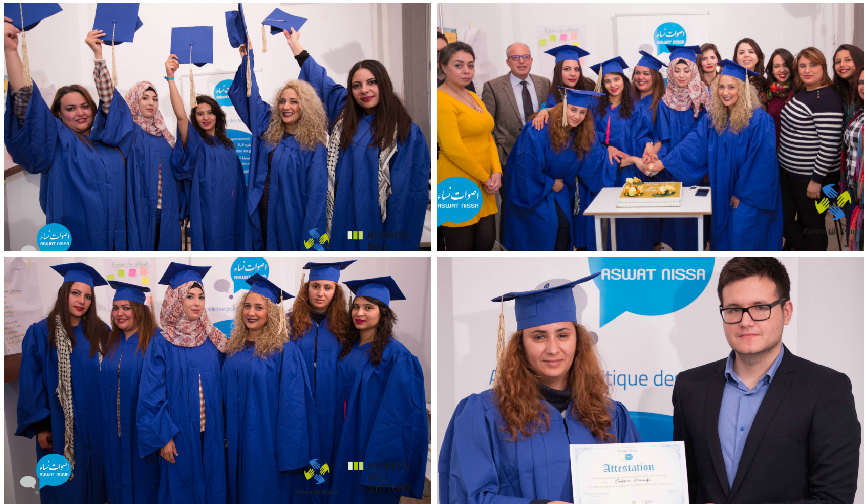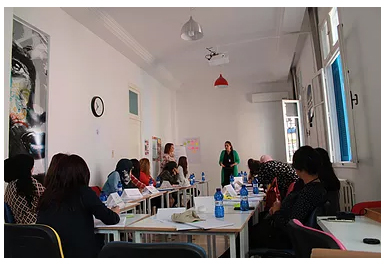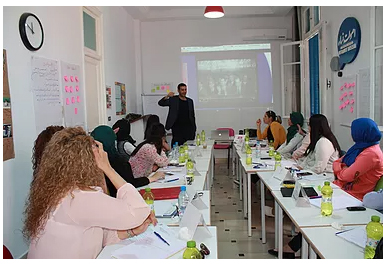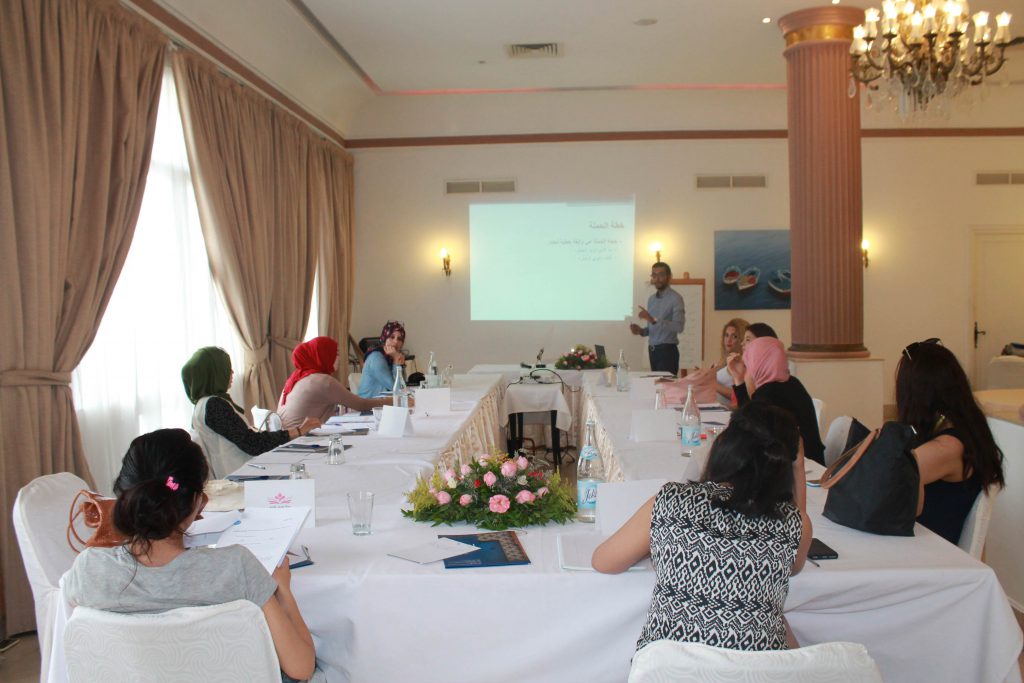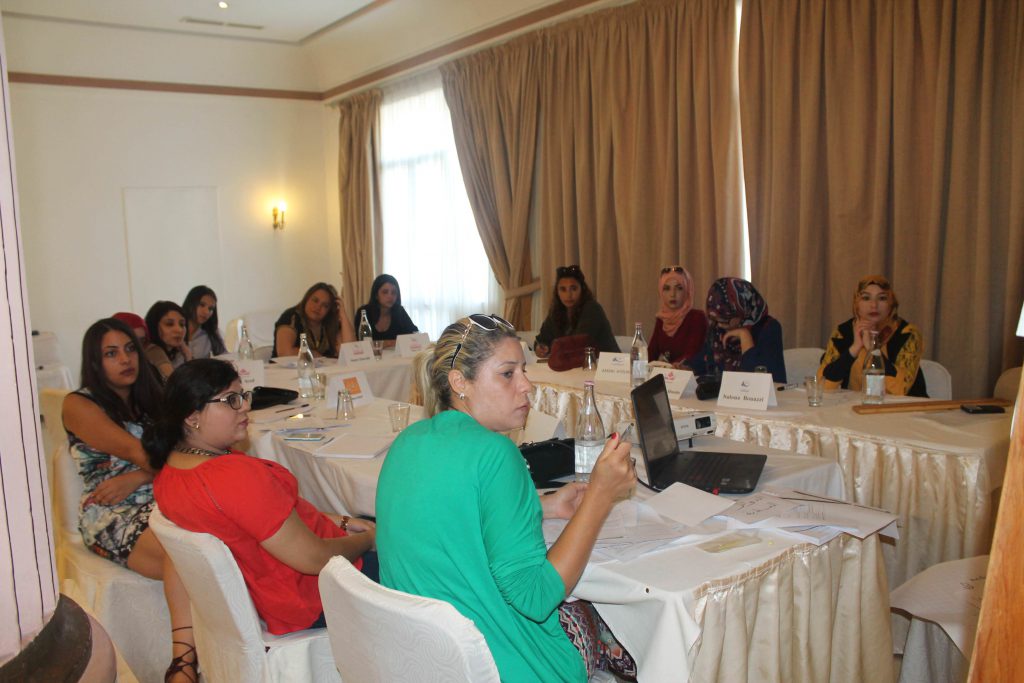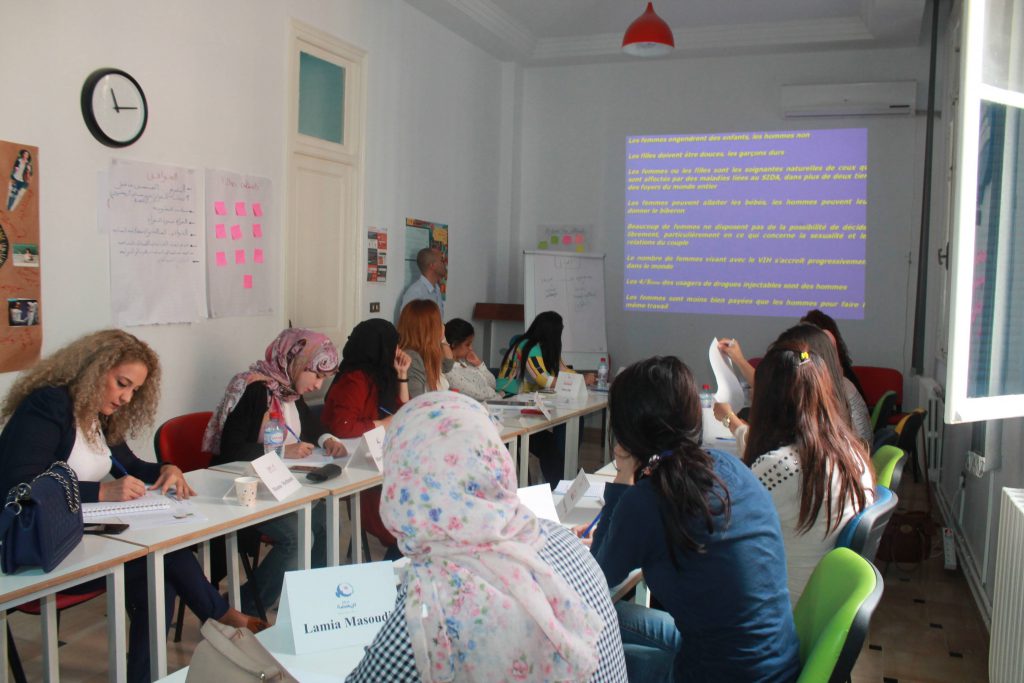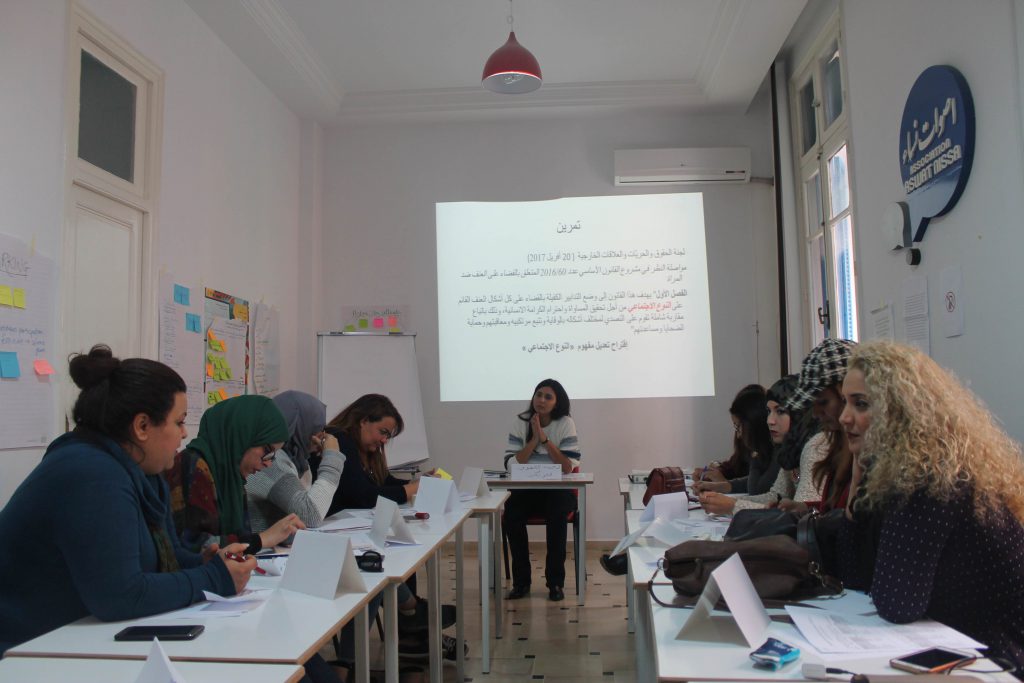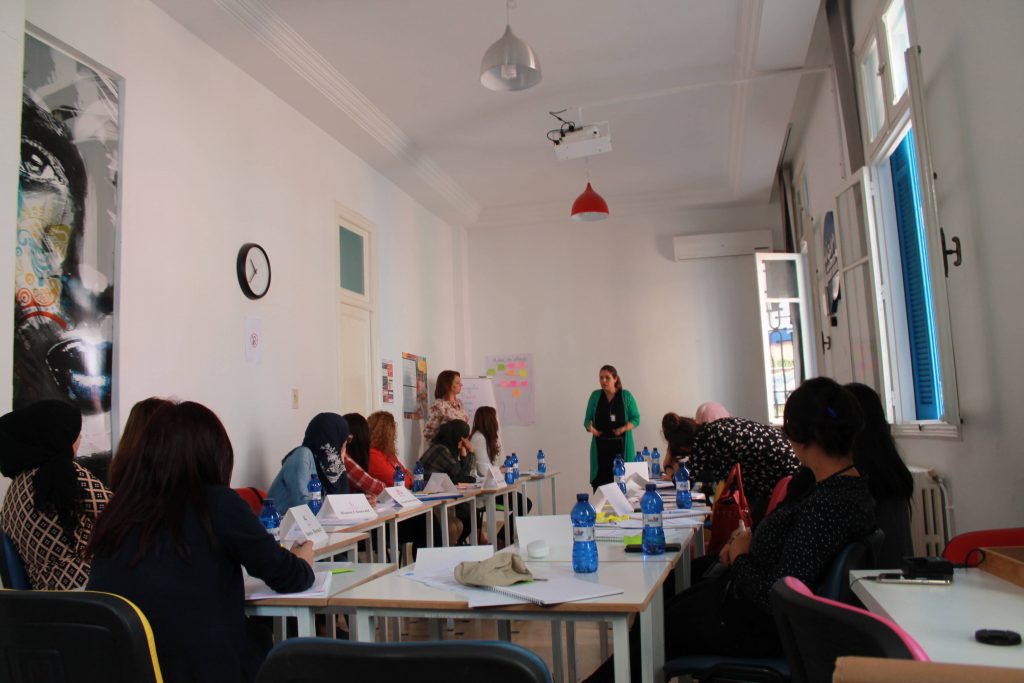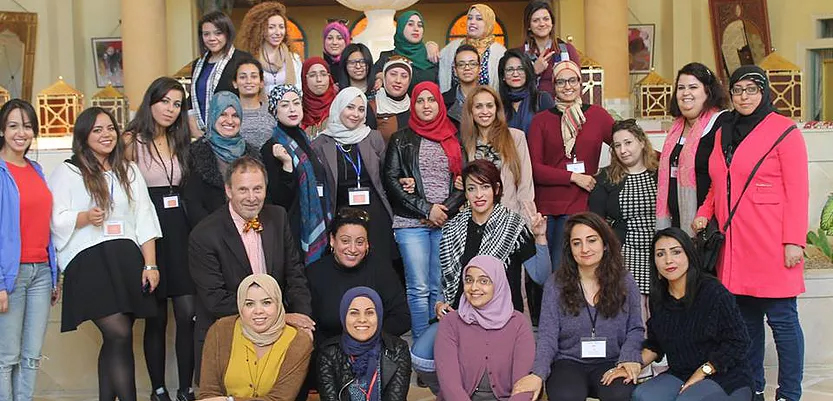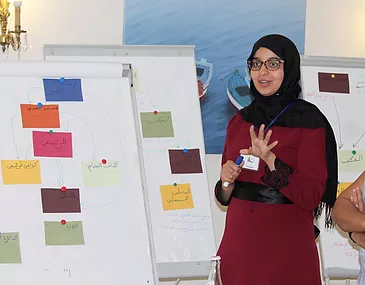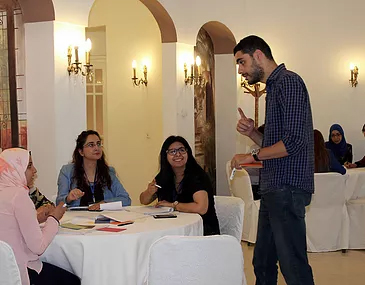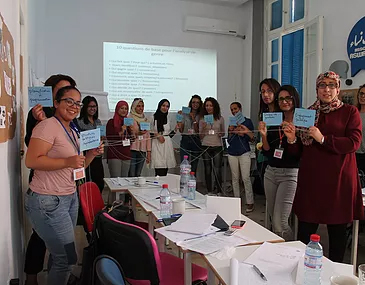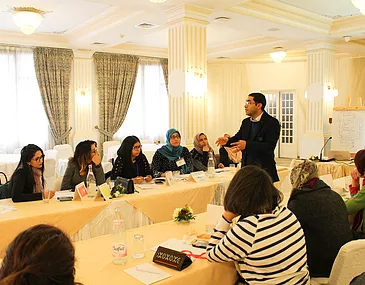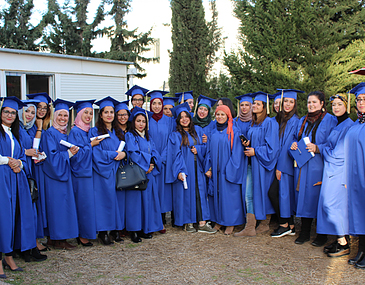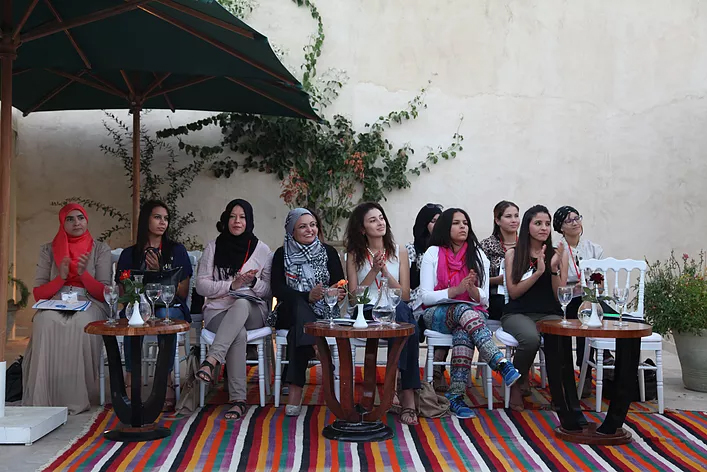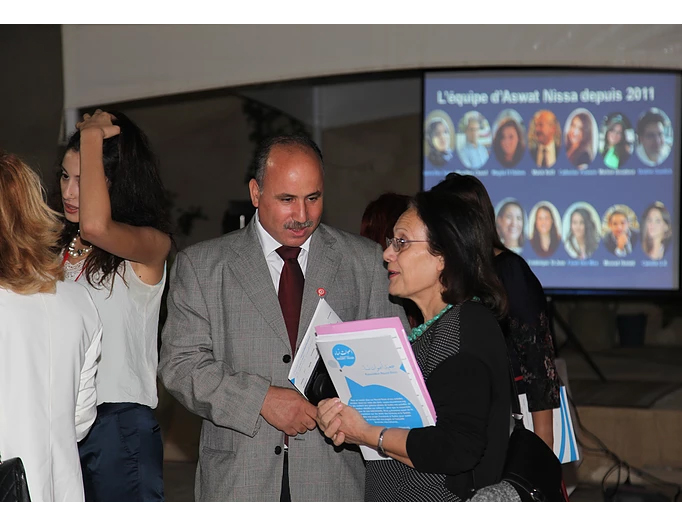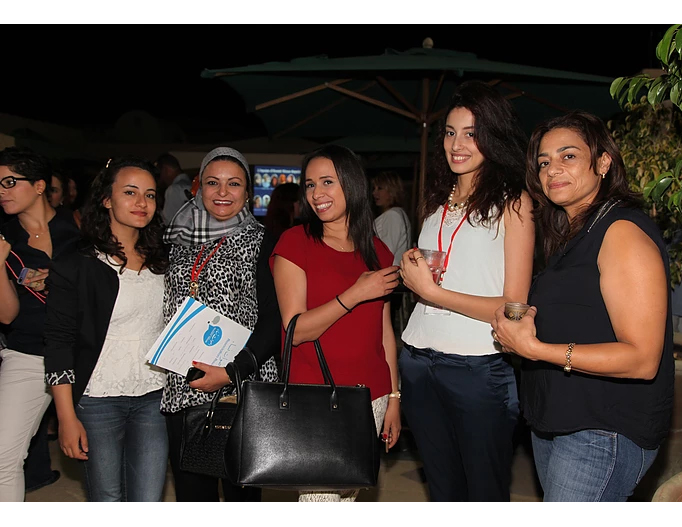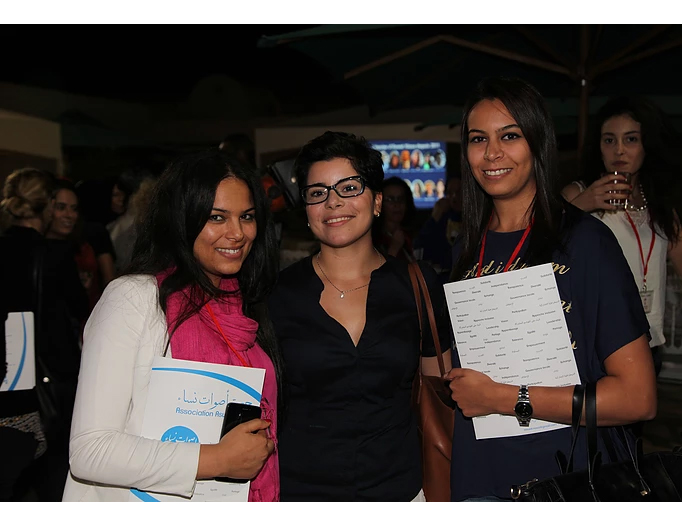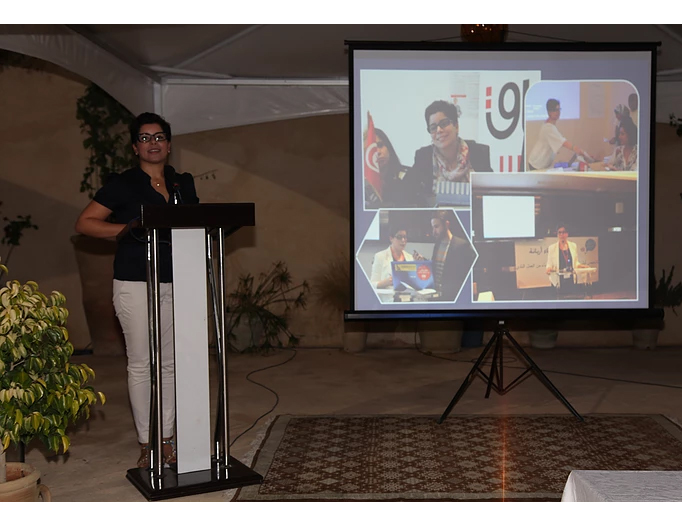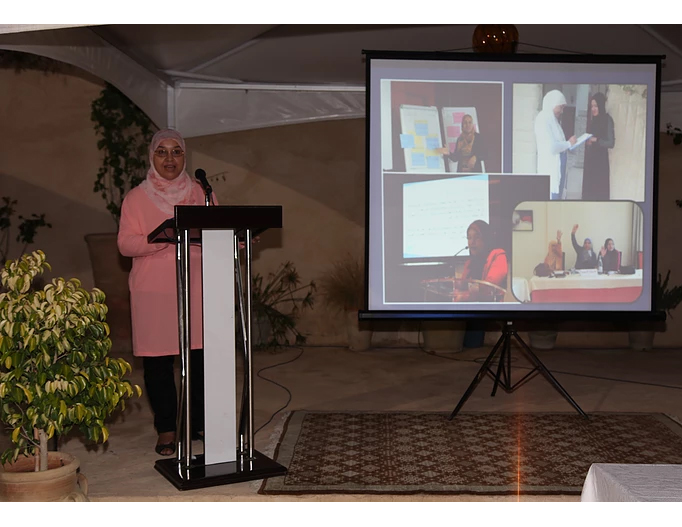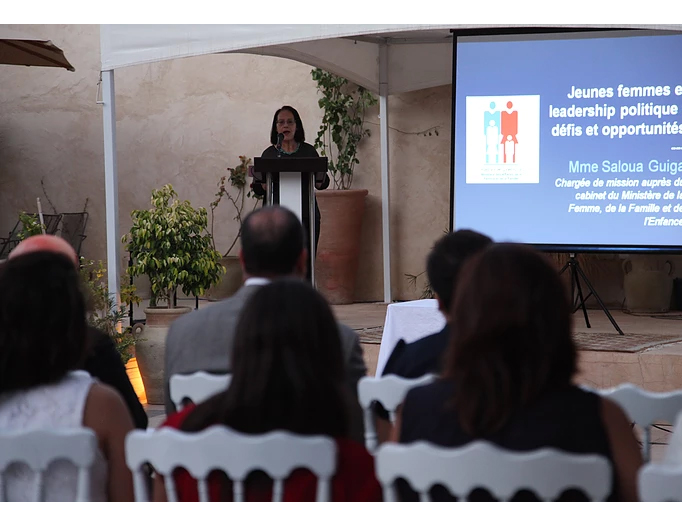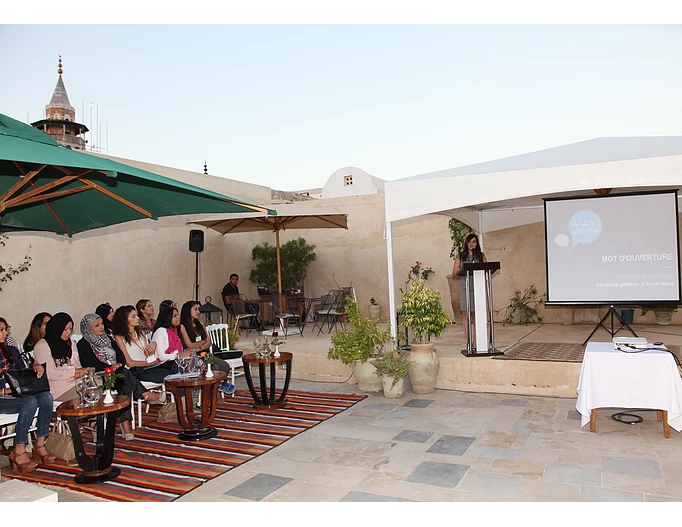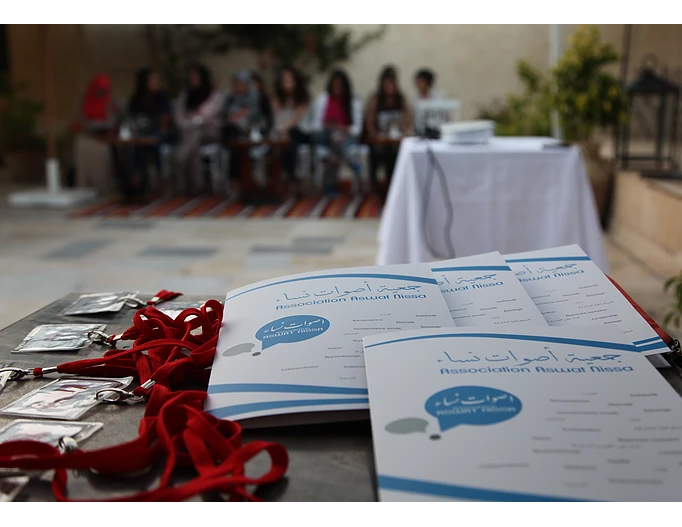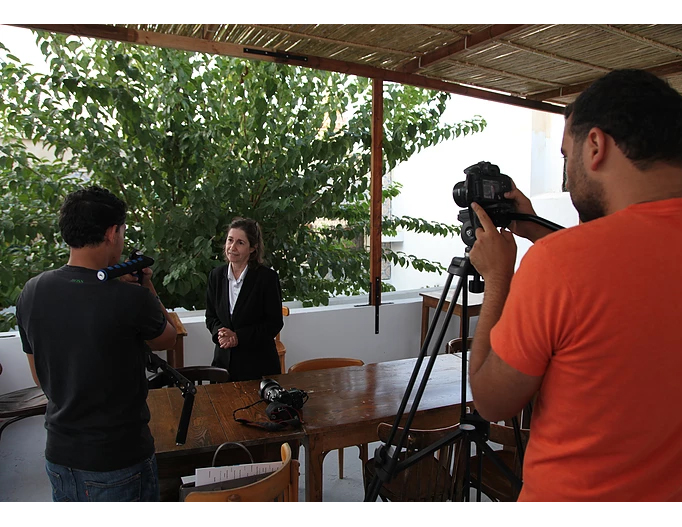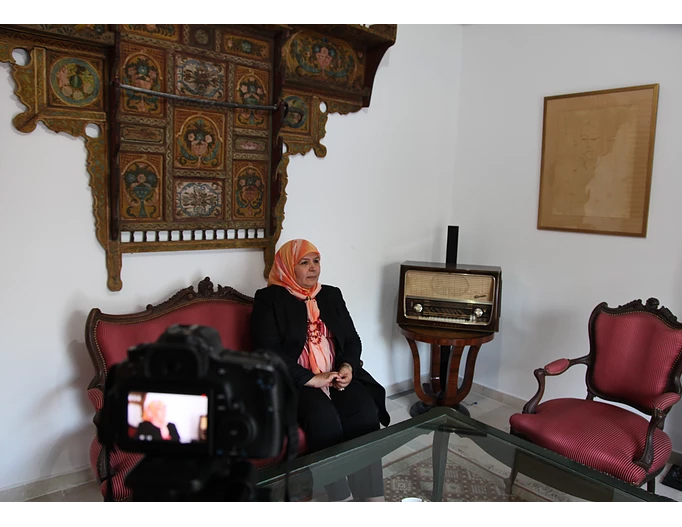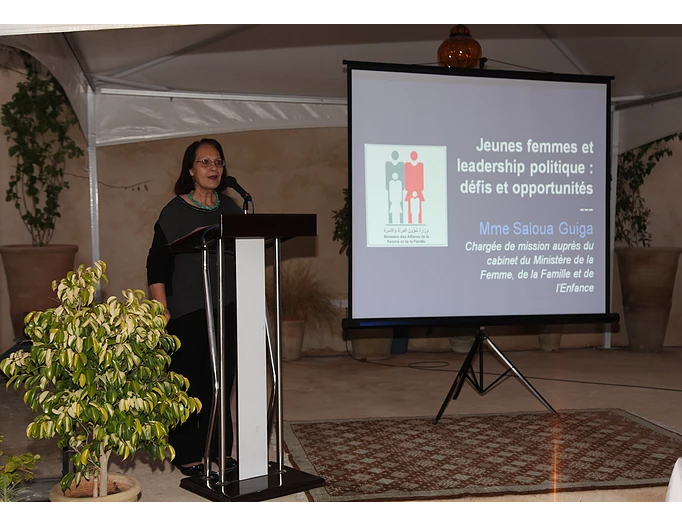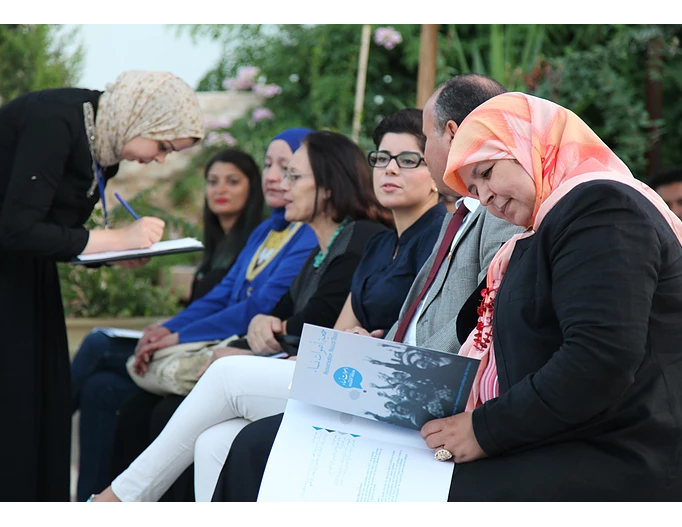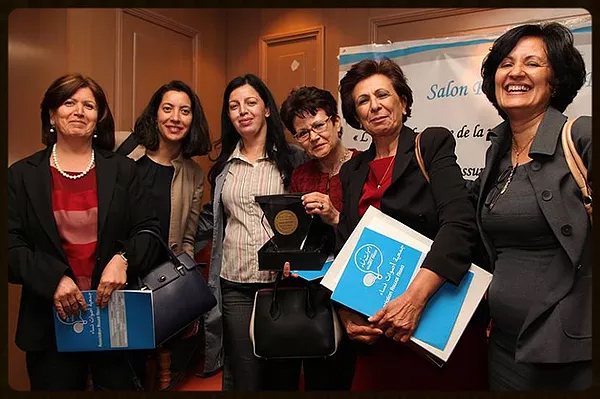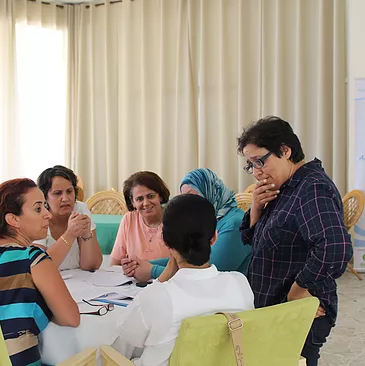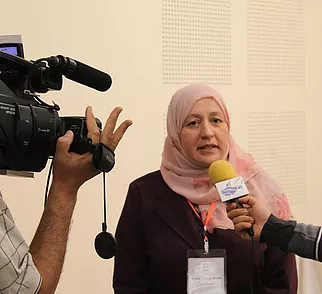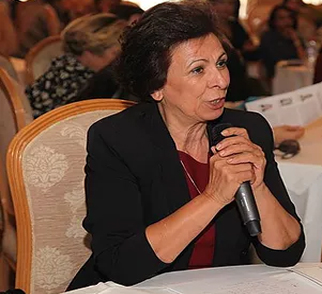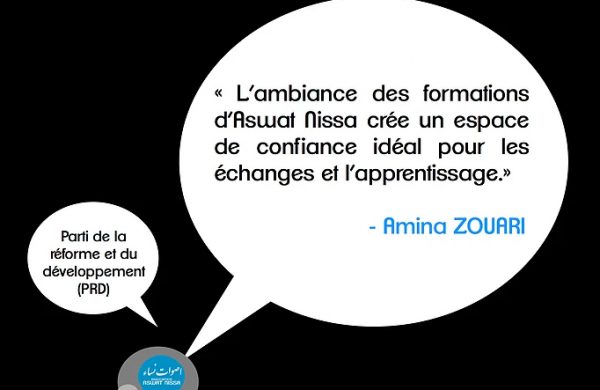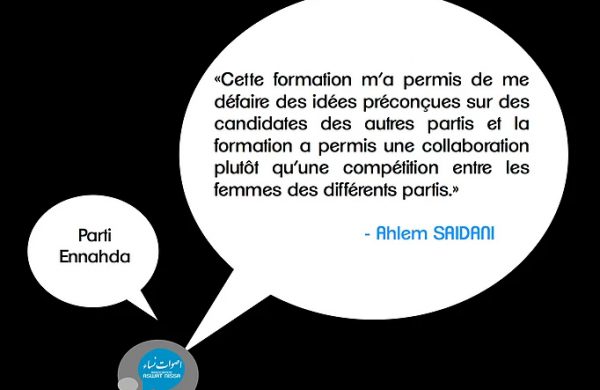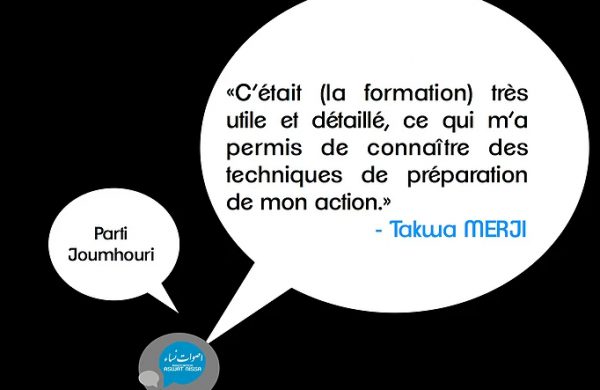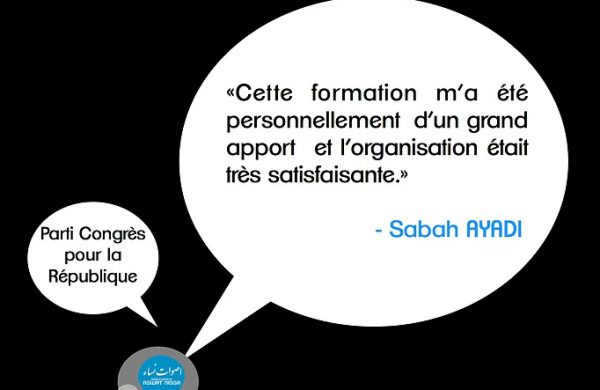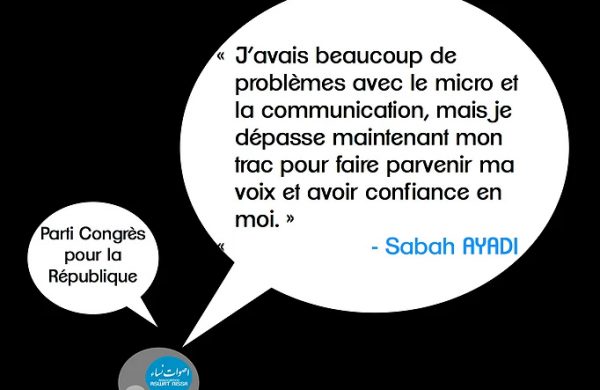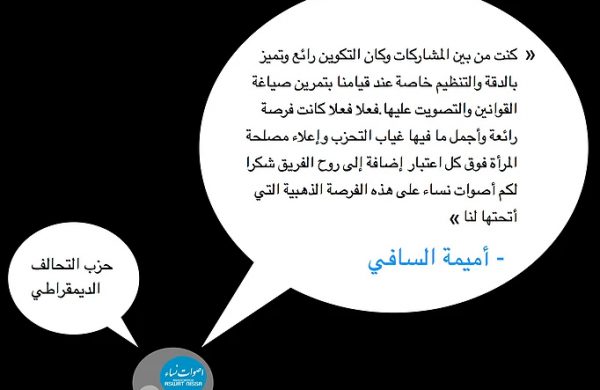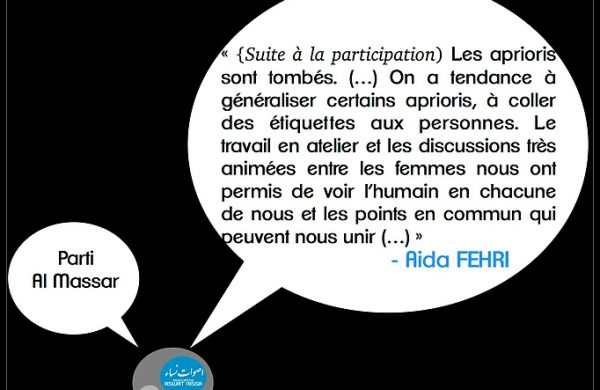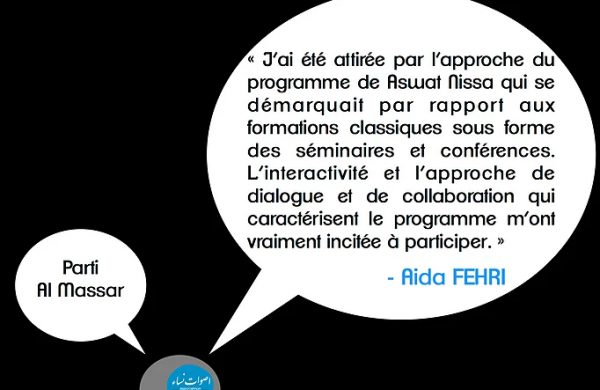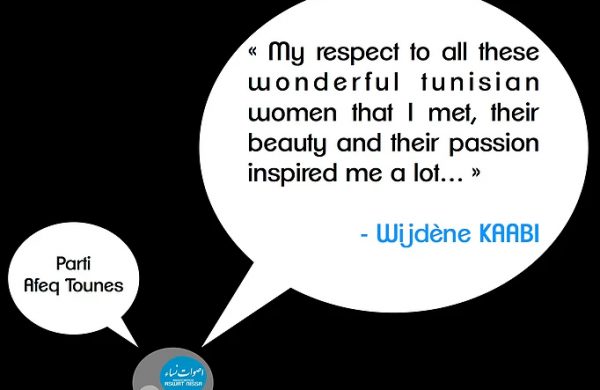Women’s Political Academy 2019
Aswat Nissa launched the 8th edition of its Women’s Political Academy on March 29th 2019. This edition wished to accompany female politicians running in the next legislative elections. For six months, these twenty female politicians from different regions and political parties will follow different trainings on various themes, notably political communication, gender mainstreaming, gender-sensitive budgeting and electoral campaigning. The political academy’s goal is to help these future MPs become actors of change and advocates for gender equality within their political party and their region.
Leadership and Self-Confidence
Political Communication
Gender and the Integration of the Gender Approach within Public Policy
Legislative Gender Analysis and Political Plea
Gender-sensitive Budgeting
Electoral Campaigning
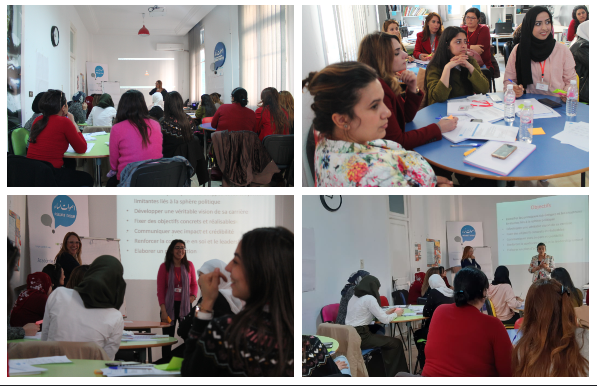
Leadership et confiance en soi
Cette formation sur le leadership et la confiance en soi, qui a eu lieu du 30 au 31 mars 2019, a été assurée par une psychologue. Cette première activité de l’Académie Politique des Femmes 2019 visait à encourager les participantes à développer un esprit d’équipe et une vision commune de la Tunisie (malgré leurs idéologies et affiliations politiques différentes). Cette activité visait aussi à favoriser la confiance en soi et l’esprit de leadership des participantes, notamment en les aidant à identifier des stéréotypes qui peuvent nuire à l’implication des femmes en politique. L’activité visait finalement à ce que les participantes établissent des objectifs politiques réalistes, puis des plans d’action qui leur permettront d’atteindre ces objectifs.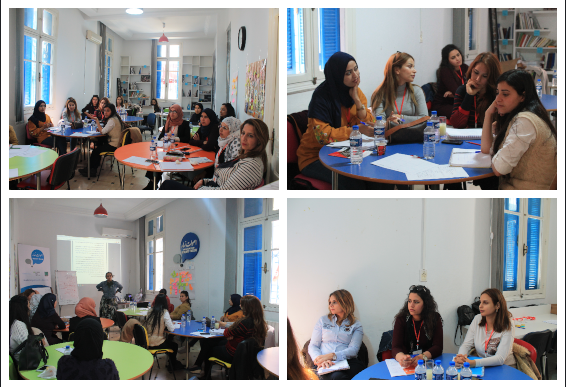
Communication politique
Les 13 et 14 avril 2019, une formation sur le thème de la communication politique a été organisée. Les candidates ont pu renforcer leurs connaissances du pouvoir législatif et des responsabilités des membres du Parlement. Elles ont aussi développé leurs habilités de communication dans un contexte politique notamment grâce à une meilleure connaissance des différents acteurs médiatiques et des spécificités de chacun. Les participantes ont finalement appris l’importance de développer un programme électoral ciblé à l’électorat visé, et ensuite, de bien le communiquer à travers le média approprié.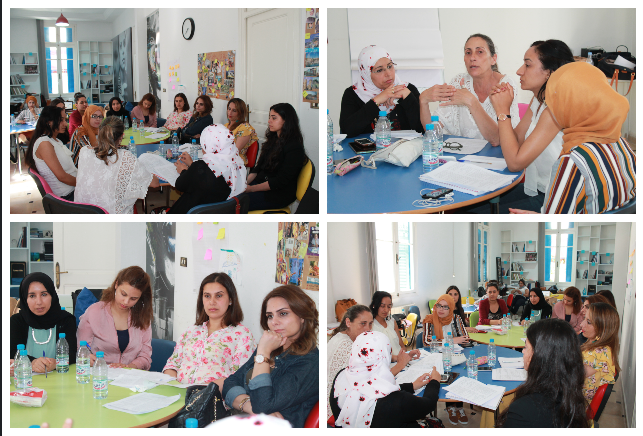
Genre et intégration de l’approche genre dans les politiques publiques
Les 23 et 24 juin 2019, les candidates ont participé à une formation sur le concept de genre et l’intégration de l’approche genre dans les politiques publiques. Les défis qui s’opposent à la promotion d’une culture d’égalité dans le contexte politique actuel ainsi que la violence et la discrimination commises à l’encontre des femmes ont été abordés. La Loi 58 contre la violence faite aux femmes et les problématiques y étant associées ont ensuite été présentés. Après avoir identifié les besoins spécifiques des femmes tunisiennes, la formatrice a finalement encouragé les femmes à développer des stratégies pour intégrer le genre dans leur projet politique, notamment par une budgétisation sensible au genre et par des projets visant l’égalité homme-femme.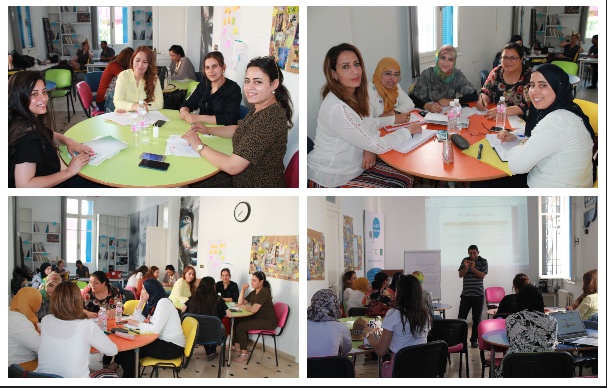
Analyse genre des lois et plaidoyer politique
L’objectif de cette formation est de permettre aux candidates de se familiariser avec les techniques de plaidoyer et d’acquérir les compétences requises pour mener une action de plaidoyer sur la scène politique tunisienne ainsi que au sein de leur parti surtout durant la période de la campagne électorale.
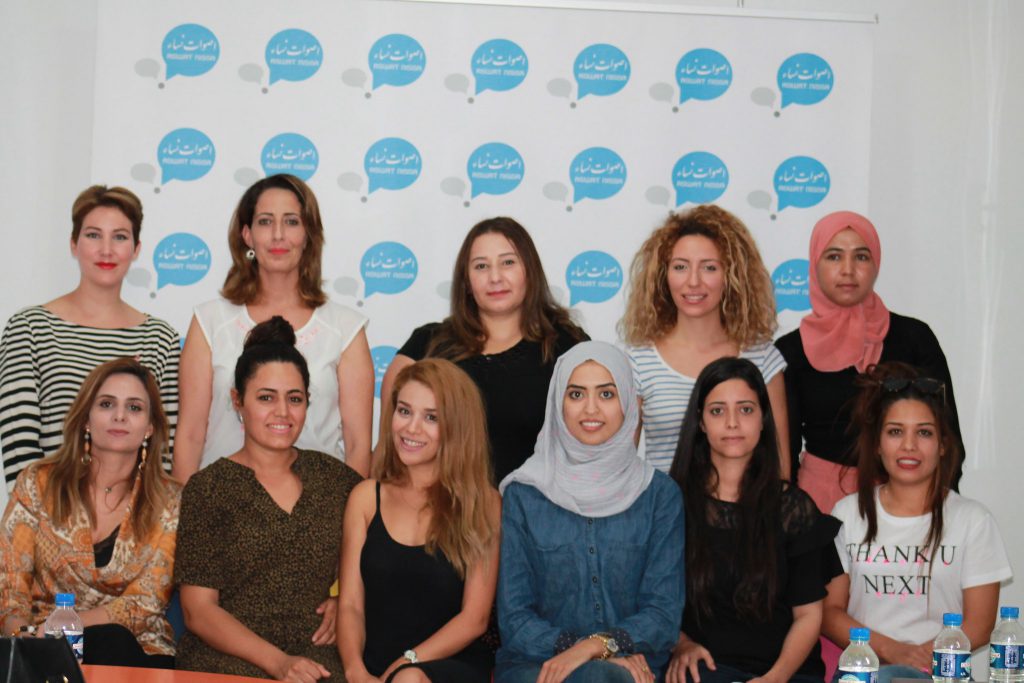
Campagne électorale
